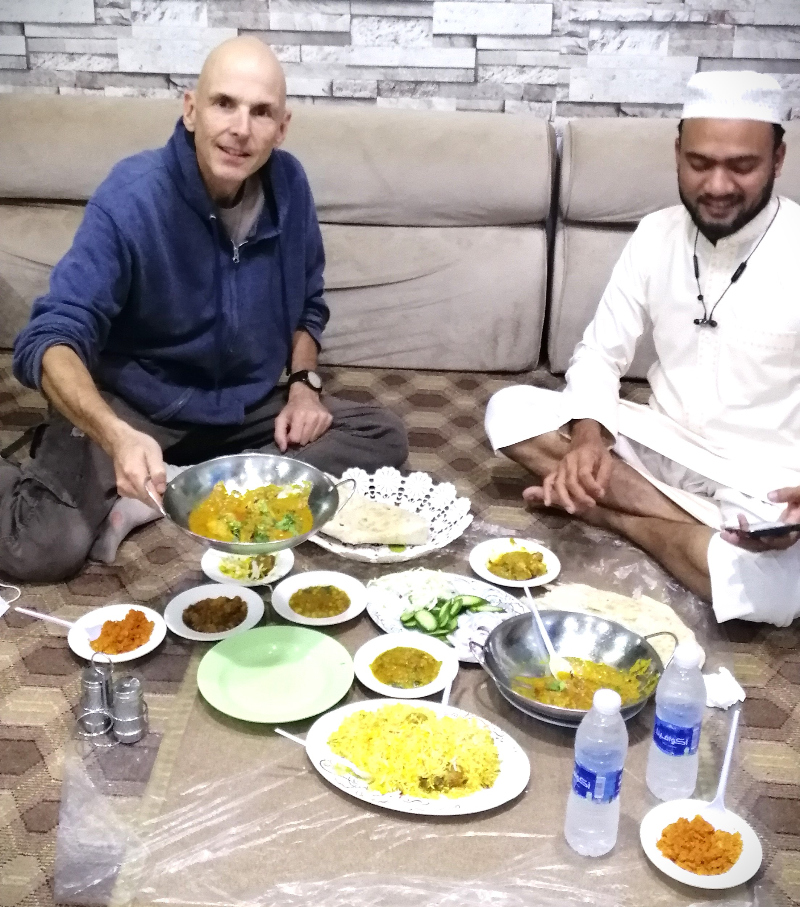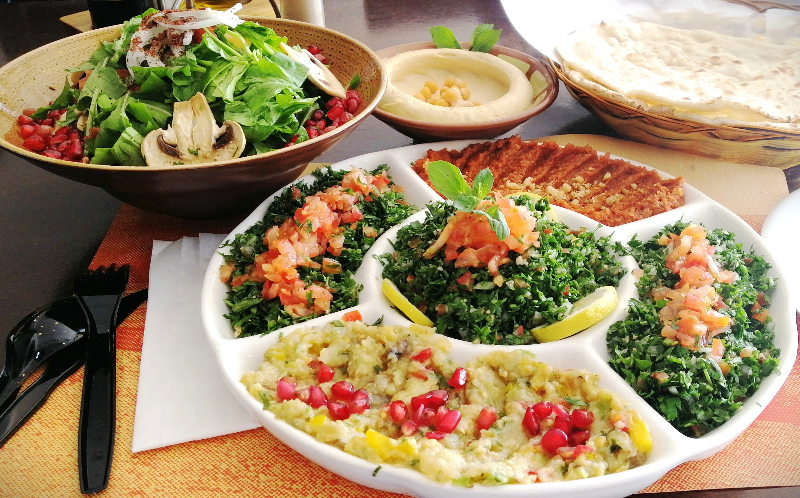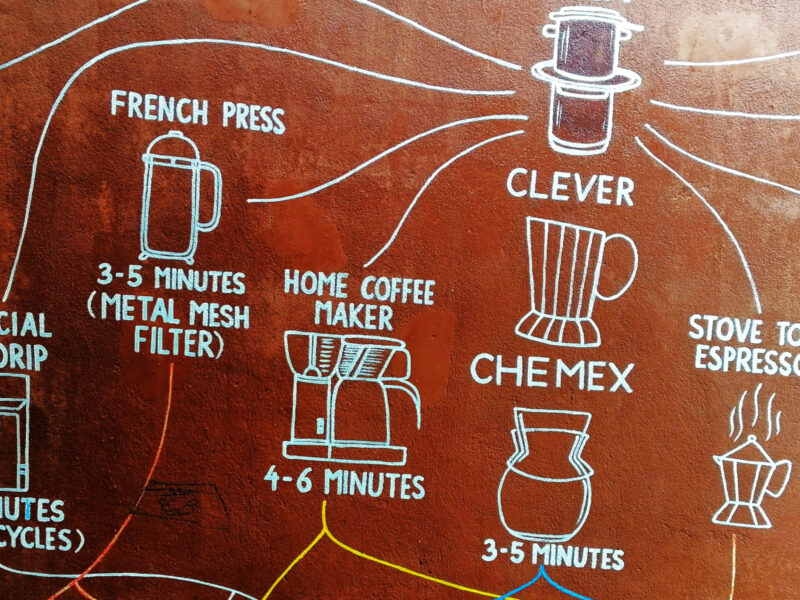I’ve done it in Arabic, Lao, Japanese, Portuguese, Spanish, Thai, and Vietnamese. I gained language functionality in these foreign tongues with minimal, yet consistent, easy effort.
Functional isn’t conversational. Functionality is using practical words for ordinary situations. Here we’re reminded to learn hello in another country. This is pure, everyday, language utilization. Everyone can benefit from knowing how to greet in another linguistic form.
Greeting a local person in their language displays character, and shows you’re a polite person.
The first day in Hafr al-Batin, Saudi Arabia, English wasn’t common or to be expected. Although, if a Bengali, Egyptiian, Indian, Pakistani, Filipino or Nepalese person worked in an establishment, there was a good chance they knew some English.

When interacting with Saudi people and those of other Arabic speaking lands, Arabic words enhanced the experience. And more importantly, allowed me to order what I wanted and how I wanted it.
Ordering food in English can be a challenge in many places on earth.
After lightly studying basic words like hello, good bye, thank you, excuse me, numbers, and the everyday question how much, food is my next function.
Other than desert, power walking and keeping a long, keen eye out for packs of wild dogs, and hoping for an encounter with a stoic camel, the best entertainment was eating out in an array of ethnic restaurants.

Like any reasonably-sized Arabian city, Hafr al-Batin is a middle-eastern food paradise. Bengali, Egyptian, Jordanian, Lebanese, Indian, Pakistani, Syrian, Turkish, Yemeni, Saudi and other cuisines are on easy offer. But knowing how to say what I wanted and how I wanted it sometimes required Arabic lingo.
While I’m a huge advocate of using fun, memory techniques to remember words, I don’t rule out easy, rote learning in minuscule, but consistent doses.
While rote learning is outdated and not ideal, it still works in some situations, like helping to remember useful language.
A Pocket Notebook is an Invaluable Tool
Jet-lagged, I sat in my complimentary apartment looking up Arabic food words. With a little notebook dedicated to direct transliteration, I wrote Arabic words down in roman letters with their English translations.
The notebook stayed in my pocket or backpack. Any chance I got, I pulled it out and glanced at a page. I could have been waiting in line at a store, power walking through the desert, lifting weights at the gym, walking through a hallway in the workplace, proctoring an exam, or even teaching a class. The notebook was readily available for a glance or two.

If you stick with this effortless endeavor daily for a short time, you’ll be amazed at how much communication ability (vocabulary) is quickly acquired.
There’s no language-learning method that takes less brain effort. Even zombies could remember the words. Although they might not have the organizational ability to acquire a notebook, look up words, write them down and have a dedicated pocket for this old-school tool.
Whether you remember something the first time, or the 100th, you will retain it.
While on my laptop, I’d sometimes spend a minute or two finding words to add. I did this for such a short time that it felt like there was nothing to it.
I was easily building Arabic vocabulary, a task that 99% of native English speakers view as grueling. Yet it was hardly any work.
Many things we think, tend to be the opposite in disguise.
It doesn’t matter if you have zero foreign language experience. No matter who you are. No matter how much education you have or don’t. No matter how old you are. No matter how passionate you are or aren’t. This method works.
Whether you remember a word the first time you write it down, or the 10th time you look at it, or even if it takes 1,000 glances, the foreign word will stick in your cranial cavity.
Your intellectual blueprint includes a language arsenal that can enhance your life and make you a better version of yourself. This is especially true if you’re in a country where new foreign words enhance your momentary existence.
But It doesn’t have to be a foreign country. If you’re Canadian, you could do it with French. If you live in the US, you can get functional in Spanish. If you’re from Guatemala City, you can learn ancient Mayan words that are still used in contemporary culture.
You can practice this easy learning activity with any language, for any reason.
I promise. This simple method works.
Keeping a notebook with words in your pocket takes minimal effort. When you engage in functional language learning, you can study for a second, or a minute at a time, anywhere. Either way, you’re being productive while typically killing two birds with one stone.
This straightforward method doesn't cause brain fatigue.
The only situations where I don’t recommend having a translation notebook handy is if you’re an air-traffic controller aiding in landing a plane, or if you’re a doctor performing work on a patient. These tasks require a pure flow state that doesn’t allow for multitasking.
A Bigger Notebook is Another Invaluable Tool
Recently, with Vietnamese, I incorporated a bigger notebook method. While it’s similar, the notebook doesn’t fit in my pocket. Instead it goes in the laptop slot of my backpack.
The bigger notebook enables you to write more. But essentially, it’s similar in that it’s effective, while requiring minimal work.

I spent little time studying the food-related words I felt were crucial to everyday Vietnamese. I attemped them a few times, and they stuck.
It helps that Vietnamese uses roman letters.
If you’re practicing rote or repetitive learning, it’s still a good idea to create memory associations, whether in your mind, on paper or both. This makes the experiece more enjoyable while enhancing cognitive integrity.
Writing and Studying ‘How Much’ in Another Language
Bao neo = ‘How much’, in Vietnamese. A memory association can be anything your imagination feels like creating.
‘Bao‘ rhymes with ‘how‘. Change the ‘h‘ to a ‘b‘. You can even ‘bow‘ while saying: ‘Bao neo‘. ‘Neo‘ refers to ‘new‘. So next time I’ll try a ‘new bow‘ when I say ‘how much’ (bao neo). That’s how I remembered it quickly.
As humanity runs on money, knowing how to say how much wherever you are is as practical as it gets. It might be the most functional two words a traveler can know. With a simple memory technique, it can be learned instantaneously. With rote (repetitive) learning, it will retain eventually.
As I’m back in Laos at the time of writing, I say tao rai‘ (how much) multiple times per day. To remember, you could picture a tao philosopher asking how much a loaf of rye bread costs. Tao Rye. This is more stimulating than learning by repetition (rote).
Memory association has no limit, and it's more fun than traditional, rote learning.
One thing I love about memory association is that there are no rules. It’s completely up to your imagination, and you can only improve with practice.
However, because classic, rote memory association still works, I don’t believe it should be completely neglected. It’s fine to use in conjunction w/ dynamic memory triggering methods. Also, repetitive learning is especially good when you want to expend little to no mental energy.
Vocabulary building with a simple notebook is a learning strategy that requires minimal brain exertion.
If there’s an occassion where you want to study but don’t want to think, you can utilize this brainless method.
With either notebook, you can study for such a short time that you don’t get get bored or feel cerebral overload.
The idea is to review (rote), or contemplate (make associations) in short spurts, as often as possible, at least once a day minimum. This way you never get overwhelmed and it becomes impossible for the words to not stick.
Writing is More Effective Than Touching a Phone Screen
The act of connecting your brain to your writing hand is an underestimated memory tool. It’s more natural and effective than pressing fingers on a phone screen.
A memory-stacking tactic is to read from the notebook when you need to use a word(s). This is another foolproof way to manipulate your recollection ability and get the language to stay in your brain faster.
Don’t Be Shy – Practice the New Words
It’s key to attempt the new words whenever possible. This can be the greatest hurdle for people who haven’t tried to speak another language. Once you try, it’ll be fun, while causing you and the people around you to laugh and smile.
It can only be positive.

In the classroom in Saudi Arabia, shyness isn’t typically an issue as Saudis tend to be ougoing people who enjoy socializing. However, teaching memory techniques can be challenging as they’re used to learning through memorization.
When improving a word arsenal, shyness doesn’t help. You didn’t grow up in the language, so you can’t possess intuition for its sounds. You and everyone else must accept this by practicing patience and sticking to the moment.
You’re not a pro at the language. You’ve had no exposure to it. Neither you nor anyone else needs high expectations. Just say it! Do it with butchered pronunciation. You’ll eventually get it. It’ll feel good.
Keep taking out the notebook(s). Make it a habit. Keep using the words. If people don’t understand, smile. Try again.
Show them the word in their language. You’ll get the perfect pronunciation on the spot. That’s when the word might become permanently embedded in your memory bank.
If it’s functional (practical), language you need, quickly study it, use it and hear it again until it becomes ingrained in your vocabulary arsenal.
Once you’ve used the word(s) enough, it has to stick. There’s no way it won’t. As with anything, consistency is key.
It doesn’t matter what the language is. It only takes a small amount of easy, consistent effort. You can gain the words you need to communicate. You can become functional in a foreign language with minimal effort.
Have you ever become functional in a foreign language? Leave a comment below or continue the conversation on Facebook and share your thoughts.



Amigo, this is excellent andragogical writing. Thank you.
Thanks GEORGE! For added clarification: Andragogy = teaching to adults, while pedagogy = teaching to children.